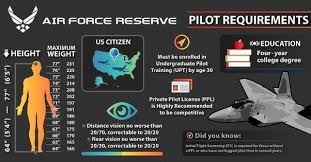Joining a SWAT (Special Weapons and Tactics) team is a challenging and rewarding career path in law enforcement. SWAT team members are highly trained officers who handle high-risk operations such as hostage rescues, counter-terrorism, and dangerous criminal apprehensions. This guide provides a detailed overview of the steps, requirements, and tips to help you successfully join a SWAT team.
What is a SWAT Team?
A SWAT team is a specialized unit within law enforcement agencies that is equipped to deal with extraordinary situations beyond the capabilities of regular police officers. These situations include:
- Hostage rescues
- Counter-terrorism operations
- High-risk arrests
- Active shooter scenarios
- Barricaded suspects
Steps to Join the SWAT Team
1. Meet the Basic Requirements
Before applying to join a SWAT team, you must meet several basic requirements:
- Age: Typically, candidates must be at least 21 years old.
- Education: A high school diploma or GED is required; a college degree in criminal justice or a related field is advantageous.
- Experience: Most SWAT teams require a minimum of 3-5 years of experience as a police officer.
- Citizenship: You must be a U.S. citizen.
- Physical Fitness: You must be in excellent physical condition.
2. Gain Law Enforcement Experience
Becoming a SWAT team member requires prior experience in law enforcement. Start by joining a police department and gaining experience as a patrol officer. Focus on:
- Developing strong communication skills
- Gaining experience in various law enforcement duties
- Building a solid record of service and professionalism
3. Enhance Your Skills and Training
While working as a police officer, seek opportunities to enhance your skills and training. Consider the following:
- Tactical Training: Participate in tactical training programs and courses.
- Firearms Proficiency: Develop your proficiency with a variety of firearms.
- Physical Fitness: Maintain peak physical condition through regular exercise and training.
4. Build a Strong Resume
When applying for a SWAT position, a strong resume can set you apart from other candidates. Include:
- Law Enforcement Experience: Detail your experience, highlighting any specialized training or notable achievements.
- Skills and Certifications: List any relevant skills and certifications, such as tactical training, first aid, or firearms proficiency.
- Professional References: Include references from supervisors or colleagues who can attest to your skills and work ethic.
5. Apply for a SWAT Position
Once you have gained the necessary experience and training, you can apply for a SWAT position within your department. The application process typically includes:
- Written Examination: A test assessing your knowledge of law enforcement and tactical operations.
- Physical Fitness Test: A rigorous physical fitness test to ensure you meet the required standards.
- Oral Interview: An interview with a panel of SWAT team members and supervisors.
- Background Check: A thorough background check to verify your qualifications and integrity.
6. Complete SWAT Training
If you are selected for a SWAT position, you will undergo intensive SWAT training. This training includes:
- Tactical Operations: Training in various tactical operations, such as breaching, clearing rooms, and hostage rescue.
- Firearms Training: Advanced firearms training, including marksmanship and handling specialized weapons.
- Physical Training: Rigorous physical training to maintain peak fitness levels.
- Scenario-Based Drills: Realistic drills and scenarios to prepare for high-risk situations.
Tips for a Successful SWAT Application
1. Maintain Physical Fitness
SWAT team members must be in top physical condition. Regular exercise, strength training, and cardiovascular workouts are essential. Focus on:
- Endurance Training: Running, cycling, or swimming to build stamina.
- Strength Training: Weightlifting and bodyweight exercises to build strength.
- Flexibility: Stretching and flexibility exercises to prevent injuries.
2. Develop Tactical Skills
Seek out opportunities to develop your tactical skills. Participate in training courses, workshops, and exercises that focus on:
- Tactical Movement: Learning how to move effectively and safely in high-risk situations.
- Firearms Proficiency: Regular practice with a variety of firearms to improve accuracy and handling.
- Crisis Negotiation: Developing skills in crisis negotiation and communication.
3. Gain Specialized Training and Certifications
Specialized training and certifications can enhance your qualifications. Consider pursuing:
- Emergency Medical Training: Basic or advanced EMT certification.
- Explosive Ordnance Disposal (EOD): Training in handling and disarming explosives.
- Advanced Tactical Courses: Courses in advanced tactical operations and SWAT techniques.
4. Network with SWAT Team Members
Networking with current or former SWAT team members can provide valuable insights and advice. Attend law enforcement conferences, join professional organizations, and seek mentorship opportunities.
Common Questions About Joining the SWAT Team
What are the physical fitness requirements for SWAT?
Physical fitness requirements vary by department, but typically include tests for endurance, strength, agility, and flexibility. Common tests include timed runs, obstacle courses, push-ups, sit-ups, and flexibility assessments.
How long does SWAT training take?
SWAT training programs vary in length, but most last several months. Training includes classroom instruction, hands-on exercises, and scenario-based drills.
Can I join SWAT directly out of the police academy?
Most SWAT teams require several years of law enforcement experience before applying. Focus on gaining experience as a patrol officer and developing the necessary skills and training.
Conclusion
Joining a SWAT team is a challenging and rewarding career path that requires dedication, physical fitness, and specialized training. By following the steps outlined in this guide, you can prepare yourself for a successful application and career in SWAT. Whether you aspire to handle high-risk operations, protect your community, or advance in law enforcement, joining a SWAT team offers a unique and fulfilling opportunity.



